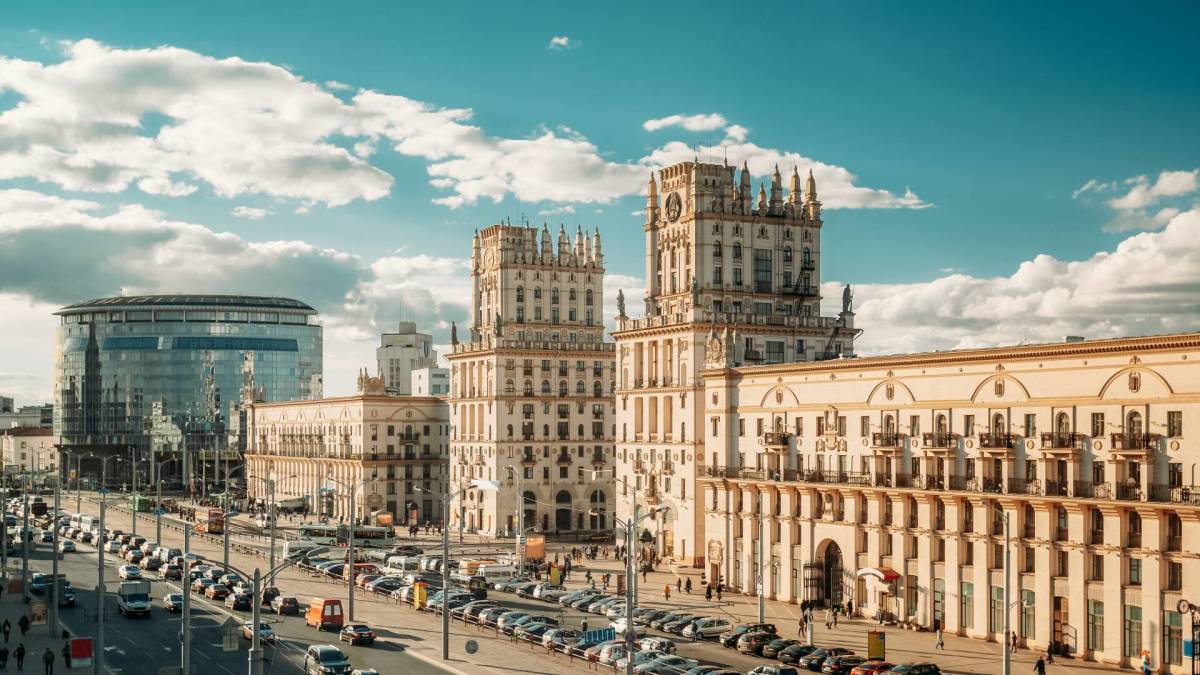
With Alexander Lukashenko serving as the president since the office was established in 1994, the Eastern European nation of Belarus is classified as "authoritarian" by the U.S. State Department. In 2020, the largest anti-government protests in the country's history were repressed as Lukashenko was voted in for a sixth term in elections widely considered to be fraudulent by independent observers and international organizations.
Amid Russia's invasion of Ukraine in February 2022, the country has also remained on the State Department's highest "Do Not Travel" advisory over "Belarusian authorities' continued facilitation of Russia's war against Ukraine, the buildup of Russian military forces in Belarus [and] the arbitrary enforcement of local laws."
Related: This is why the State Department is warning against Germany travel
All of this does not exactly encourage most citizens of Western countries to fly over to Belarus for tourism but, this week, the country's government announced that it was expanding travel for citizens of 35 nations making up Europe's Schengen zone.
The list of approved countries includes both European Union members such as Germany, Estonia and France and independent non-members such as Switzerland and Norway. While a visa obtained at a consulate was formerly required, the new rules allow entry with just a passport and proof of travel insurance for up to 30 days.
More on travel:
- Another National Park just made it more difficult for you to visit
- Delta Air Lines makes a baggage change that travelers will like
- United Airlines passenger incident triggers quick response
The change, which according to the country's Foreign Ministry, was formally approved and endorsed by Lukashenko, is an effort to boost the country's international tourism industry which is virtually non-existent amid the ongoing political situation.
Related: Get the best cruise tips, deals, and news on the ships from our expert cruiser
Hidden motives: 'Return to his policies of balancing between the West and Russia'
"Lukashenko is trying to return to his policies of balancing between the West and Russia because he doesn't want to hold the 2025 election in a 'besieged fortress' and wants the West to recognize its result," political analyst Valery Karbalevich told the Associated Press. July 20 will mark the 30th year that Lukashenko has held onto power.
The Belarusian Foreign Ministry called it a move of "openness and peacefulness" but the country's involvement in the Russian attacks on Ukraine (while stopping short of directly participating, Belarus has allowed its territory to be used by Russian troops to train and cross the shared border with Ukraine) and alliance with Putin has definitively tarnished any reputation the country had as a tourist destination.
Even before the war, Belarus had a reputation for having authoritarian laws. Switzerland, which is one of the countries to which visa-free access was granted, warns citizens that "Russia's persistent military aggression against Ukraine makes the situation unpredictable in Belarus as well."
"In general, comments and assessments on social media as well as information that may be of a political nature are sanctioned," writes the country's Federal Department of Foreign Affairs. "The applicable laws are very restrictive and can be strictly enforced."
At the time of the 2020 protests, a number of citizens of foreign countries including the United States were detained for attending anti-government rallies in Minsk and several other cities. There is also the ever-present risk of political imprisonment as highlighted with the arrest of Americans like WNBA star Brittney Griner and Wall Street Journal reporter Evan Gershkovich in Russia.
Related: Veteran fund manager picks favorite stocks for 2024







